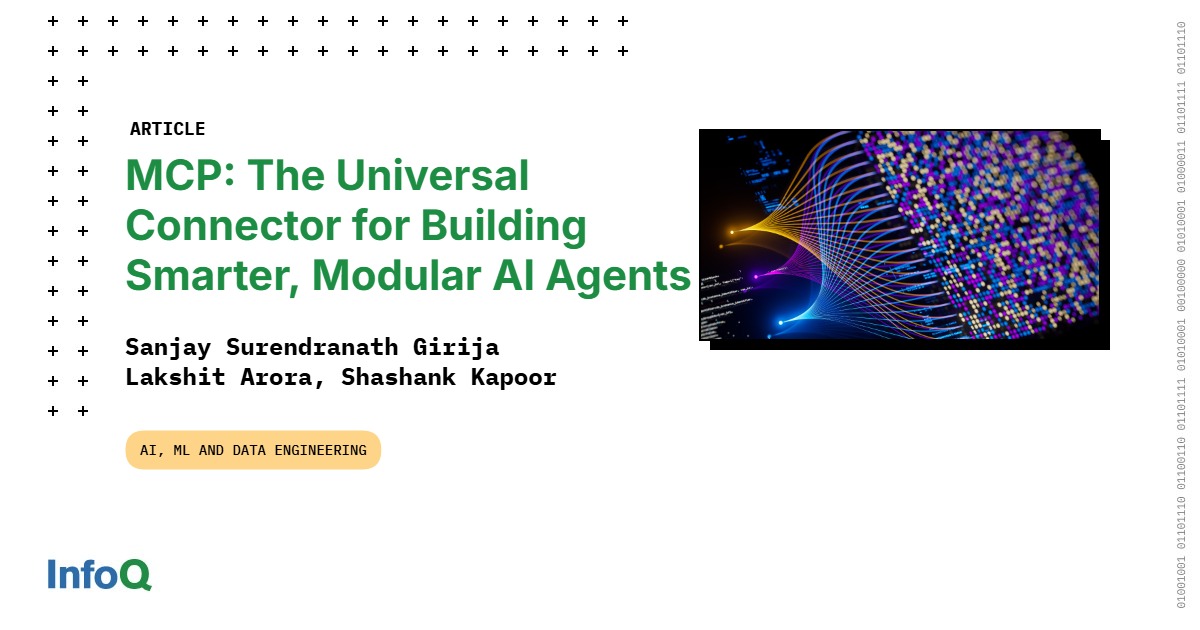
"AI agents, powered by large language models ( LLMs), have the potential to revolutionize how we interact with information and automate complex tasks. However, to be truly useful, they must effectively leverage external context and data sources, utilize specialized tools, and generate and execute code. While AI agents are capable of tool usage, integrating these external components and making AI agents work with these tools has been a significant hurdle, often requiring bespoke, framework-specific solutions."
"Enter Model Context Protocol ( MCP). Launched in late 2024 by Anthropic, MCP is rapidly emerging as a "USB-C for AI" - an open, universal standard designed to seamlessly connect AI agents with the tools and data they need. This article dives into what MCP is, how it empowers agent development, and how it is being adopted in leading open-source frameworks. We discuss the key capabilities MCP unlocks and its real-world applications."
Model Context Protocol (MCP) is an open standard that defines a Host–Client–Server architecture to connect AI agents with external tools, data, prompts, and sampling controls. A Host runs the user-facing AI agent or IDE, a Client manages protocol communication, and a Server exposes Tools, Resources, Prompts, and Sampling through a standardized API. MCP reduces integration fragmentation by turning M×N connections into modular M+N interoperability, enabling decoupled, future-proof tool development and easier maintenance. MCP adoption by frameworks like LangChain, CrewAI, and AutoGen demonstrates growing ecosystem momentum and democratizes tool integration for agent builders.
Read at InfoQ
Unable to calculate read time
Collection
[
|
...
]